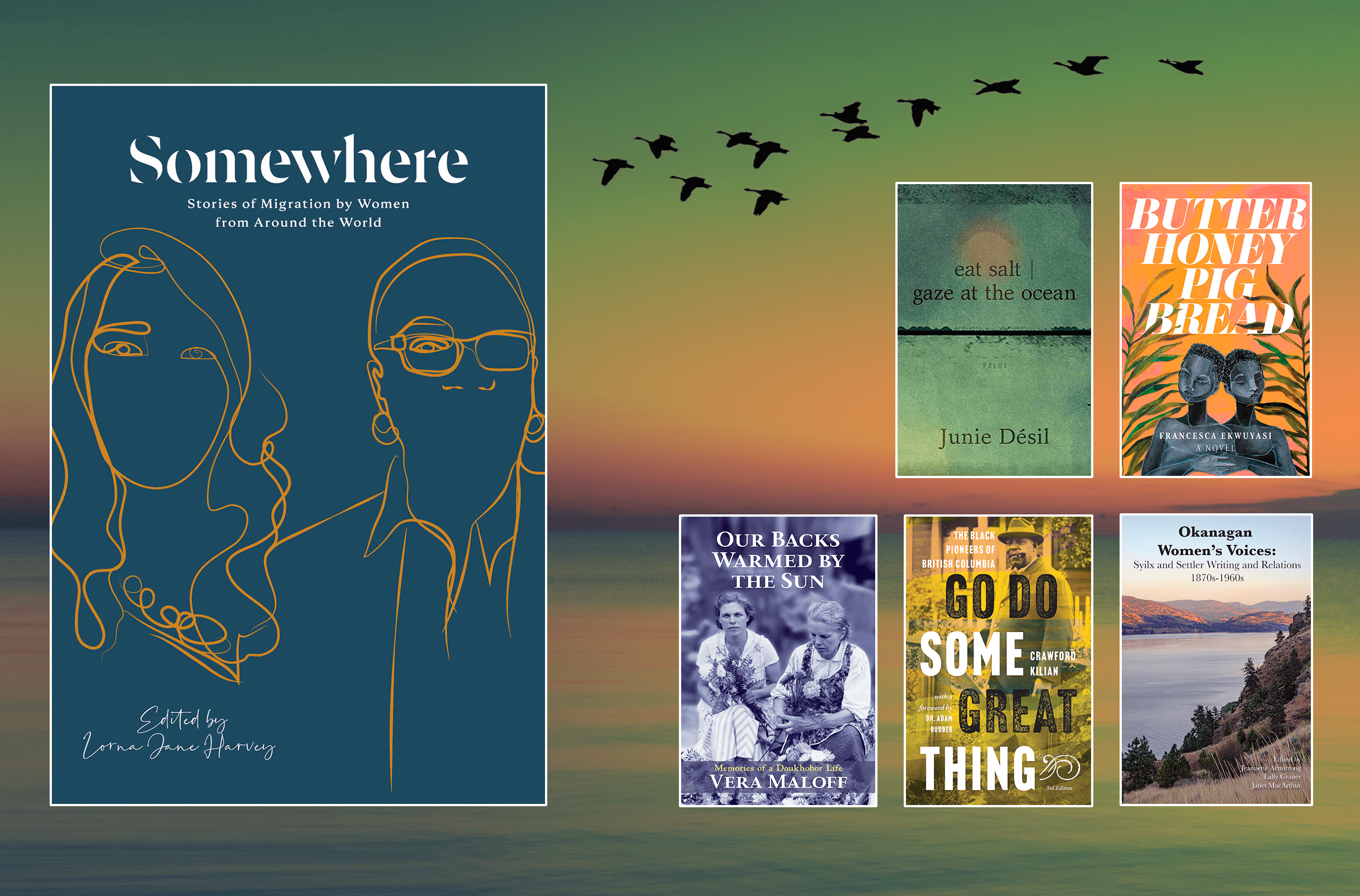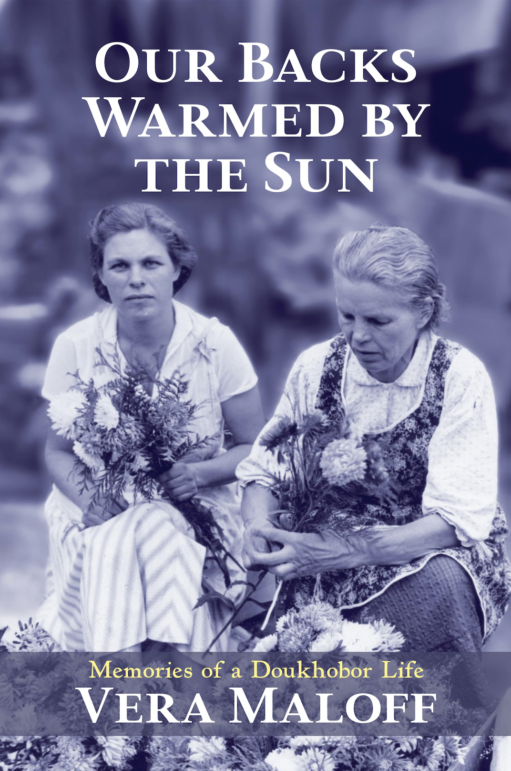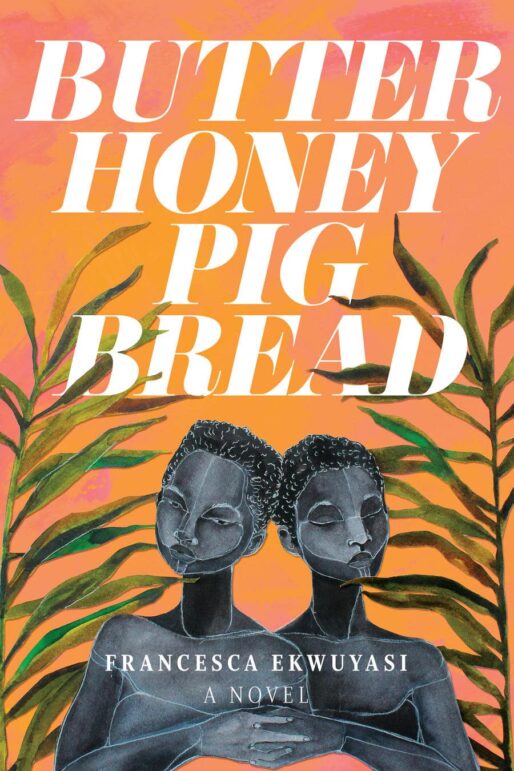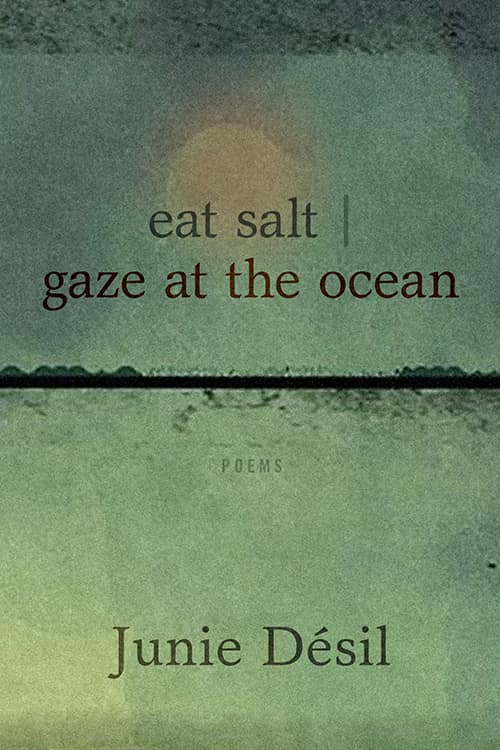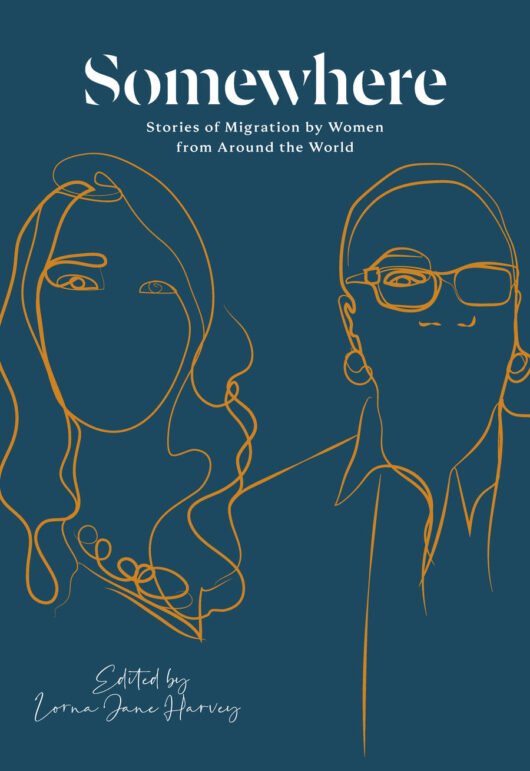
We live in an age of precarious migration—from climate change to war and famine, there has been no greater attention paid to the plight of refugees and asylum-seekers than in recent memory.
This is especially true of the intersectionality of migration: how gender, class, identity, and experience affect not only a person’s passage from one place to another, but all of their future experiences in the places they land.
During Women’s History Month, we reflect on the journeys undertaken by women to find ‘home,’ an amorphous place where safety, community, and culture intersect in powerful, beautiful, and resilient ways. From the arts to political movements and multi-cultural diaspora, we’re recommending six local books on the power of migration written by or featuring women.
Inspired by a soon-to-be-released collection on this very topic, Somewhere (TouchWood Editions), edited by Lorna Jane Harvey, these books feature women speaking to identity, belonging, assimilation, alienation, politics and our global climate emergency.
In Somewhere (out November 3), twenty women share stories of their own migration from around the world, exploring and unpacking the wonder and uncertainty that is to be a woman on the move. Fleeing political upheaval, cataclysmic climate change and more (or simply seeking better), these women share intimate moments from their lives, offering varied perspectives, sincerity and—most importantly—love, and deep hopes for the future.
Our Backs Warmed by the Sun: Memories of a Doukhobor Life
by Vera Maloff
Caitlin Press
The Doukhobor from Russia once made national headlines for civil disobedience and arson. Vehemently against violence, members of the sect in Canada became frequent protestors, harbourers of draft dodgers, and steadfast critics of the government of the day. Emigrated but not assimilated, they were met with arrests, hoses, physical abuse, and in the case of Maloff’s grandmother, Elizabeth, institutionalization. Our Backs Warmed by the Sun is a story of courageousness in adversity and remaining steadfast in the face of injustice—even in a new homeland.
Tracing the Doukhobor movement from Russia, Maloff explores the spiritual influence of its leaders, not shying away from the controversial or the toll their activism had on families and communities, probing with “a historian’s curiosity and a daughter’s tenderness,” as her publisher describes.
Butter Honey Pig Bread: A Novel
by Francesca Ekwuyasi
Arsenal Pulp Press
A stunning debut novel longlisted for the 2020 Scotiabank Giller Prize, Butter Honey Pig Bread, by Nigerian author Francesca Ekwuyasi centers food, family and forgiveness. Intergenerational relationships in Ekwuyasi’s world are equally heart-warming and heart-wrenching, as readers are transported into the world of twin sisters Kehinde and Taiye, and their mother, Kambirinachi, as they navigate superstitious grief and devastating trauma of which the only solace is migration—to Montreal for Kehinde; London for Taiye.
On a return to Lagos after nearly a decade to visit their mother, who believes herself an Ogbanje, or spirit which plagues families with misfortune, the three women must finally reconcile their relationships and bonds. Called a masterful debut by Booklist, and a chance for readers to savour language through Ekwuyasi’s emotional depth and supernatural elements, this is a must-read.
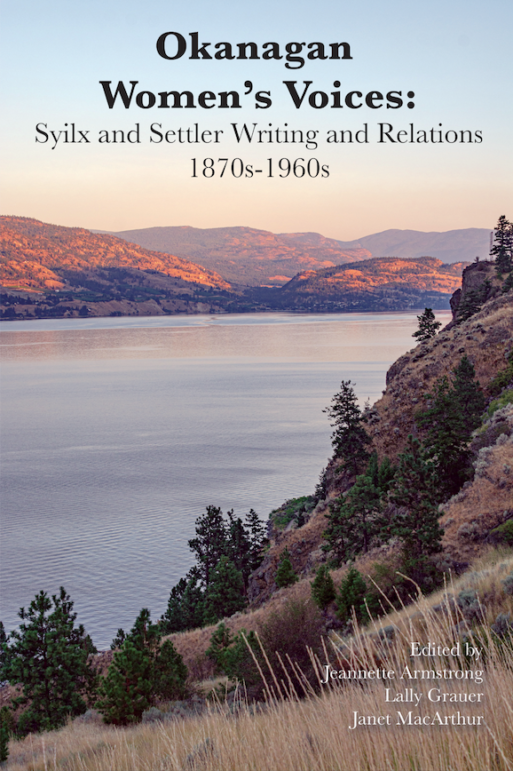
Okanagan Women’s Voices: Syilx and Settler Writing and Relations 1870s–1960s
Edited by Jeannette Armstrong, Lally Grauer and Janet MacArthur
Theytus Books
FORTHCOMING
In Canada, there was perhaps no greater (or more tragic) disruption to Indigenous cultures and Peoples than the arrival of settlers and their subsequent conquest of unceded and ancestral land and territory. Here migration takes its most grievous form: that of displacement, even within the places a people have always called home.
In Okanagan Women’s Voices, editors Armstrong, Grauer and MacArthur compile correspondence, diaries and more from the early settlement period of the Okangan Valley in BC to the 1960s, including oral histories as told to Josephine Shuttleworth and Morning Dove. A direct window into the lives of settlers and Indigenous Peoples in eras of upheaval, uncertainty and reform, this collection is a much-needed lens into histories too often told by the colonial state.
eat salt | gaze at the ocean
by Junie Désil
Talonbooks
Born of immigrant parents and of Haitian ancestry, and a traveler who has lived in at least three major Canadian cities (of which BC is now home), Junie Désil’s debut poetry collection is one which powerfully tackles ideas of Black and Haitian sovereignty, Black lives, and the metaphor of Haitian zombies in rich, undulating and experimental prose.
Using a mix of other textual work to supplement her own, Désil deconstructs fictions, newspaper articles, dictionaries and judicial papers while exploring her experiences as an immigrant child raised on stolen lands. (The title, of course, is the cure for reversing a zombie to life.) A stunning and thoughtful debut, eat salt | gaze at the ocean is political and fantastical, authentically wondrous and real.
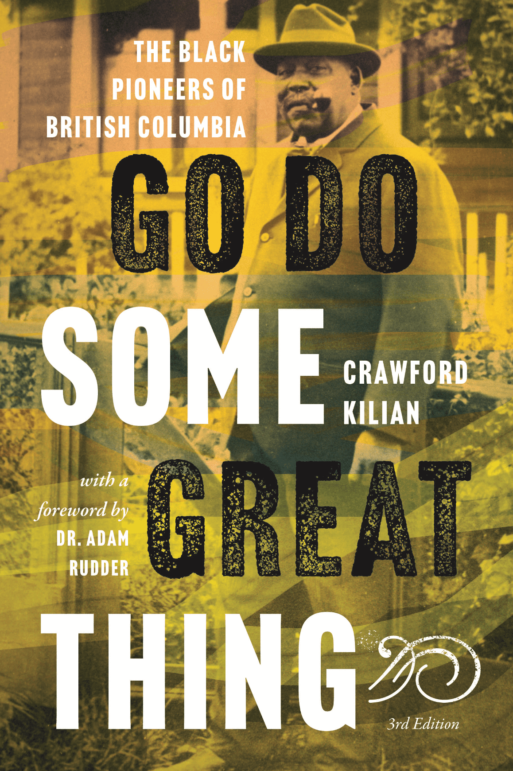
Go Do Some Great Thing: The Black Pioneers of British Columbia
by Crawford Kilian
Douglas & McIntyre
In pre-Civil War America, young Black activist Mifflin Gibbs was feeling overwhelmed by tide of the country’s legalized racism when abolitionist Julia Griffith encouraged him to “go do some great thing.” These words helped inspired him to become a successful merchant on the West Coast, before seeking a more just society in the new colony of Vancouver Island, where he was to become a prominent citizen and elected official.
Among the group of nearly 600 Black Californians who emigrated from the Bay Area to Vancouver Island, Go Do Some Great Thing also chronicles some of the most prominent and influential women in the movement, especially in the case of Sylvia Stark, a pioneer of Salt Spring Island’s original community and the first Black teacher on the island, as well as a legend who lived to the age of 106. Told with reverence and enlightening narrative, Kilian shares a world often obstructed, erased, or forgotten in Canada. This is a necessary history for BC residents in particular: Kilian shares the hardships and triumphs of BC’s first Black residents, and the legacy they left that still influences our province today.
What other books make your list? Share your recommendations with us on Twitter, Instagram and Facebook with #readlocalbc.

